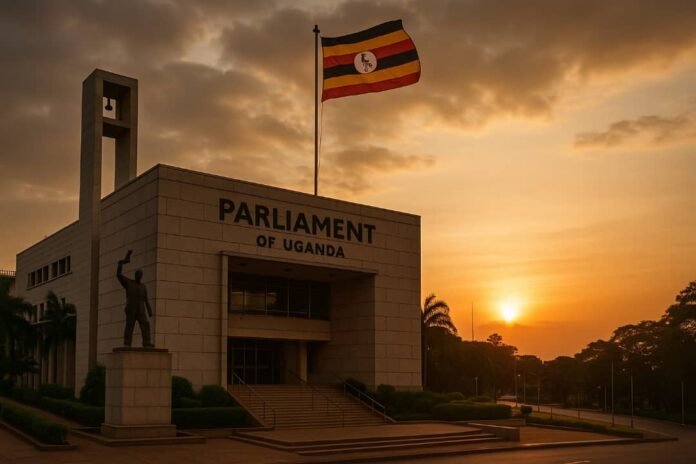By Isaac Christopher Lubogo
Otto von Bismarck’s famous dictum—“Politics is the art of the possible, the attainable—the art of the next best”—remains one of the most enduring summaries of pragmatic statecraft. It acknowledges that politics is less about idealism and more about maneuvering within the constraints of power, opportunity, and time. In the context of today’s Uganda, this phrase finds both its vindication and its betrayal.
1. The Meaning Behind “The Art of the Possible”
At its core, Bismarck’s phrase implies that politics is a realm where ideals are negotiated, not merely declared. It is a practice of balancing competing interests, of advancing progress where perfection is impossible. The “possible” is often determined by what is politically sustainable, not necessarily what is morally optimal or theoretically elegant.
In Uganda, this philosophy has become the default compass of governance—where political actors, across the spectrum, justify every compromise, alliance, or contradiction as part of the “possible.”
2. Uganda’s Political Landscape: The Pragmatic Labyrinth
Uganda’s political field today is a mosaic of contradictions held together by pragmatism.
The ruling National Resistance Movement (NRM) has mastered the art of political elasticity. President Museveni’s governance style blends populism, militarism, and patronage—each adjusted according to what is “possible” at a given time. The 1986 ideals of “fundamental change” have been reinterpreted through the logic of survival: what keeps the system functional, even if not fully democratic.
The opposition, too, plays within the boundaries of possibility. Figures like Bobi Wine, Gen. Mugisha Muntu, and Norbert Mao navigate between activism and realism—recognizing that the electoral, security, and economic terrain is uneven. Their political imagination is repeatedly tempered by state control, internal fragmentation, and a patronage economy that rewards loyalty over ideology.
Thus, Ugandan politics operates less on principled opposition and more on calibrated negotiation—a constant dance between conviction and concession.
3. Patronage as the Currency of the Possible
Uganda’s politics is sustained by an extensive patronage network—ministries, districts, advisors, and special envoys have multiplied not purely for administrative efficiency, but for political balance. It is the art of keeping everyone “slightly satisfied.”
In this system, political possibility is measured in loyalty, not law. Those who toe the line are “made possible” through appointments, contracts, or access; those who dissent face legal and economic impossibility. The art of the possible thus morphs into the art of survival, not governance.
4. The Paradox of the People’s Will
In a democracy, “the possible” should reflect the people’s aspirations. In Uganda, however, the people’s will is often interpreted, not implemented. Electoral processes, gerrymandering, and state-aligned institutions ensure that outcomes are “possible” within the system’s preferred boundaries.
The paradox is that stability has been achieved through controlled flexibility. Uganda is peaceful yet politically rigid; economically growing yet socially strained. The “possible” becomes a justification for incrementalism—for doing less than what justice demands in the name of what the system permits.
5. The Moral Cost of Possibility
The danger of defining politics purely as “what is possible” is moral decay.
When every compromise is justified, principle becomes optional. When expediency rules, truth becomes negotiable.
Uganda’s handling of corruption scandals, environmental degradation, and human rights abuses often follows this logic: “Let us not destroy the system while fixing it.” But in so doing, the system slowly corrodes itself from within.
The “possible” can become a veil for the permissible, and then for the corrupt.
6. Toward a New Understanding of “the Possible”
For Uganda to reclaim political dignity, it must redefine the boundaries of possibility.
Institutional possibility: Strengthen Parliament, courts, and local governance as real centers of accountability.
Ethical possibility: Restore a moral compass where political success is measured not by tenure but by transformation.
Generational possibility: Allow a peaceful, merit-based transition that reclaims the lost ideals of 1986.
Civic possibility: Empower citizens to believe that democracy is not the art of waiting, but the art of shaping.
Only then can politics evolve from the art of survival to the art of stewardship—the intelligent pursuit of the common good within real constraints.
7. Conclusion
In today’s Uganda, politics truly is the art of the possible—but the definition of “possible” is dangerously narrow. It has become a euphemism for the convenient, not the courageous; for continuity, not creativity. Yet within every era of constrained possibility lies a generation ready to expand it.
The ultimate challenge for Uganda’s leaders and citizens alike is this:
> To make the impossible—justice, accountability, and peaceful succession—possible once again.








